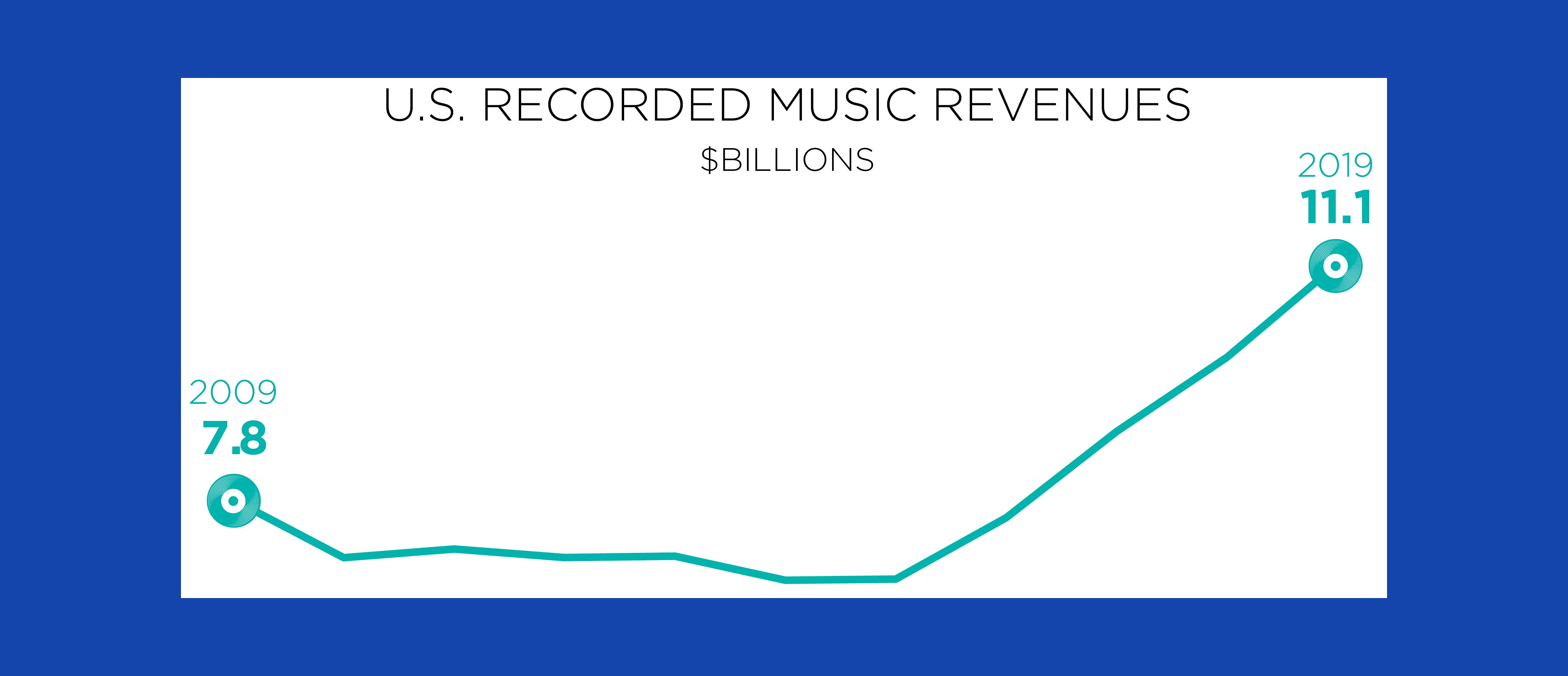Streaming made nearly 4/5ths of US recorded music revenues in 2019
Music in the US has made over $10 billion for the first time since 2007 and it’s nearly all thanks to streaming revenues.
The RIAA (Recording Industry Association of America) have released their year-end report for 2019 showing great things for music in the US. Amazing growth, down nearly solely to music streaming services, has put the US recorded music industry in its best position in over a decade.
Revenues for 2019 were up 13% on 2018 and paid streaming subscriptions brought in a whole 25% more revenue than the year before. Total streaming revenues grew to $8.8 billion meaning that streaming services like Spotify and platforms like YouTube make up very nearly 80% of the $11.1 billion in US recorded music revenues last year.
This is also the first time since 2007 that the total has exceeded $10 billion. Music revenues dropped harshly in the early 2000s as the internet catered to a quickly spawning market of music piracy. By the middle of the first decade it was rife and was having a severe impact on industry revenues.
Music streaming services launched as a solution to a new, digital world where all of the music through recorded history had become a click away. Using adverts or paid subscriptions they provided the same free and unlimited access but with a source of revenue for artists and labels.
Some criticise streaming models for not paying out enough but the truth is that the music industry was rapidly dying before streaming. The industry needed to catch up with the times and the internet had completely re-invented the landscape within a couple of years.
The RIAA’s report shows incredible growth of revenues in the past decade and the impact streaming is having on the total. As we continue on in to this post-streaming world we will no doubt see the models evolve as well.
Deezer have talked about, and are hopefully testing this year, a new UCPS payment model. This new system sends the money of subscriptions directly proportional to the subscribers listening through a month. For example if they only listened to 1 artist that month then their whole $10 subscription (minus the $3 that Deezer take) goes straight to that artist.
The current model splits all payments into a pot and pays out based on streams. It works but means that people’s susbcriptions aren’t going directly to the artists they listen to. This would have a drastically positive effect on smaller artists who may get less streams but have dedicated local fans.
As the RIAA have shown, there is a lot money in music streaming. It has revived an industry on the brink of unrestrained theft of content. Looking forward it could be time to look at how these revenues are now given to artists.
